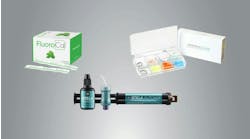By Fred Heppner
Author's Note: I received an email not long ago from a dentist in my state regarding credit balances, or money owed patients. Here is the message. Names have been changed to keep identities private.
"I don't know if you remember me or not, but I worked with Dr. Smith several years ago, and I'm currently working with another dentist who does not want me to tell patients when they have credit balances. I personally feel this is unethical because in a sense we are stealing money that is owed back to the patient. I was also given the impression that our local state law mentions that the doctor does not have to return any money owed to the patient if it is under $50, and the balance can simply be adjusted off under "Miscellaneous Adjustment." I'm contemplating purchasing the practice, and I want to have the best possible opportunity to retain as many patients as possible. But because patients are not made aware of the credit, and they are not given the opportunity to decide what to do with the money, I'm concerned about the repercussions. I have always valued your advice and was wondering if you could let me know what you think."
Of course the money should be given back; it's the right thing to do! In terms of public relations, it will sink a practice if people know their dentist is keeping their money for his or her own benefit.
To answer this question, let's first review some elements of the credit balance issue. More often than not, a credit balance is the result of an overpayment by either the patient/guarantor or a third party. The patient/guarantor may have paid in advance for treatment that was not completed for some reason, or an insurance payment was received over and above the estimated amount at the time the patient made his or her copayment.
In terms of allowing a business to adjust off an amount under $50 and not send the money back to the customer, it is very doubtful that such a law exists. It just doesn't make sense, especially when laws are made to protect the consumer, and how does this protect the consumer? No law exists in Arizona where this author resides.
Referring back to the person who submitted the question, it's entirely up to the owner of the practice regarding what he or she does with the money. Purchasing a practice entails researching all aspects of the business, including the business practices orchestrated by the owner. It is reasonable to consider that if hiding money from patients is contrary to one's philosophy of business, one may wish to find a practice that is more in line with one's main beliefs.
Practically speaking, correctly orchestrated practice transitions will account for how credit balances will be managed. Traditionally, the seller will reconcile the credit balance report and identify money owed to patients. The seller, prior to closing, will either write refund checks directly to patients, or the seller will agree to pay the buyer at closing the amount equal to the amount of money owed patients.
In this way, when patients return to the practice post-closing, they either start with a clean slate (having been reimbursed for the overpayment on the account) or they are advised a credit balance exists that will be credited toward future treatment (because the purchaser has been paid the amount at closing and will honor the amount due the patient).
Don't overlook this important detail when contemplating a practice transition. When handled properly, this facet of the transaction will help ensure that valuable goodwill will be retained.
Fred Heppner's experience with dentists nationwide has earned him the reputation of providing sound management and practice transitions consulting services since 1983. He is a member of ADS covering Arizona. Contact him at [email protected] or (888) 419-5590, ext. 480.
Past DE Issues





